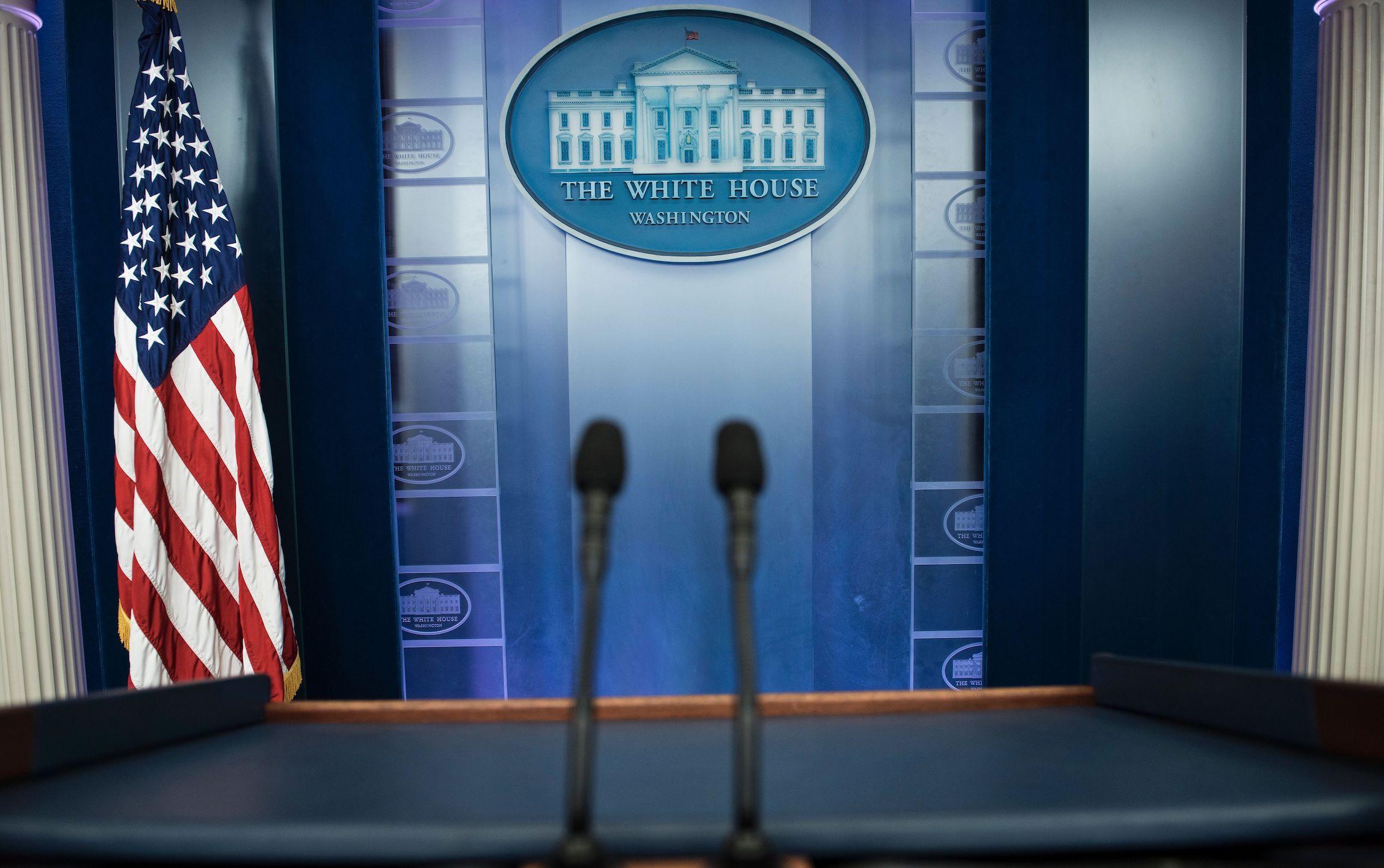White House blocks CNN, BBC, New York Times, LA Times from media briefing
The Trump administration hand-selected news outlets for the meeting

The White House has blocked several major news outlets from covering its daily press briefing without any explanation.
White House Press Secretary Sean Spicer on Friday hand-selected news outlets to participate in an off-camera “gaggle” with reporters inside his West Wing office instead of the James S Brady Press Briefing Room.
The news outlets blocked from the press briefing include organisations that President Trump has criticised by name. CNN, BBC, The New York Times, LA Times, New York Daily News, BuzzFeed, The Hill, and the Daily Mail were among the news outlets barred from the gathering.
Instead, the press secretary hand-picked news outlets including Breitbart News, One America News Network and The Washington Times, all news organisations with far-right leanings. Other major outlets approved included ABC, CBS, NBC, Fox News, Reuters and Bloomberg.
“Nothing like this has ever happened at the White House in our long history of covering multiple administrations of different parties,” Dean Baquet, executive editor of The New York Times, said in a statement.
“We strongly protest the exclusion of The New York Times and the other news organisations. Free media access to a transparent government is obviously of crucial national interest.”
BuzzFeed’s editor-in-chief, Ben Smith, also responded to his outlet being barred from the briefing: “While we strongly object to the White House’s apparent attempt to punish news outlets whose coverage it does not like, we won’t let these latest antics distract us from the work of continuing to cover this administration fairly and aggressively.”
And the BBC's Washington bureau chief, Paul Danahar, said: “We understand there may be occasions when, due to space or circumstances, the White House restricts press events to the established pool.
“However, what happened today did not fit into that pattern. On this occasion selected media were allowed to attend the briefing and the selected media, including the BBC, were not.
"The BBC has a representative at every daily White House briefing so we are not clear why we were barred from today's. We have sought clarification from the White House Press team. Our reporting will remain fair and impartial regardless.”
Several media outlets including the Associated Press and Time magazine declined to attend the briefing to boycott the President's decision.
A Wall Street Journal reporter attended the meeting without being aware of the circumstances. The publication later promised to boycott similar press briefings.
"The Wall Street Journal strongly objects to the White House's decision to bar certain media outlets from today's gaggle,” a spokesperson for the newspaper said in a statement. “Had we known at the time, we would not have participated and we will not participate in such closed briefings in the future."
Fox News anchor Bret Baier discouraged conservative news outlets who celebrated the gaggle, citing organisations that defended his network when former President Obama tried to freeze out Fox News in 2009.
“Some at CNN and New York Times stood with Fox News when the Obama admin attacked us and tried to exclude us,” he wrote on Twitter, “a White House gaggle should be open to all credentialed orgs.”
President Trump renewed his attacks on the media by again calling news outlets “the enemy of the people” at the Conservative Political Action Conference in Washington DC. "I'm against the people that make up stories and make up sources," he told his audience. "They shouldn't be allowed to use sources unless they use somebody's name. Let their name be put out there."
His comments come on the heel of reports that President Trump’s Chief of Staff Reince Priebus privately asked the FBI to prevent news stories of the Trump campaign’s communication with Russian intelligence.
Reporters blocked from off-camera White House briefing
Show all 17Jeff Mason, the president of the White House Correspondents’ Association, said his organisation will protest strongly against the ban.
"The WHCA board is protesting strongly against how today's gaggle is being handled by the White House," he said in a statement. "We encourage the organizations that were allowed in to share the material with others in the press corps who were not. The board will be discussing this further with White House staff."
Joel Simon, executive director of the Committee to Protect Journalists, also called the decision alarming.
“President Trump’s calls for an end to anonymous sources was alarming. It is not the job of political leaders to determine how journalists should conduct their work, and sets a terrible example for the rest of the world, where sources often must remain anonymous to preserve their own lives,” he said in a statement.
“We are concerned by the decision to bar reporters from a press secretary briefing. The US should be promoting press freedom and access to information.”
Subscribe to Independent Premium to bookmark this article
Want to bookmark your favourite articles and stories to read or reference later? Start your Independent Premium subscription today.

Join our commenting forum
Join thought-provoking conversations, follow other Independent readers and see their replies